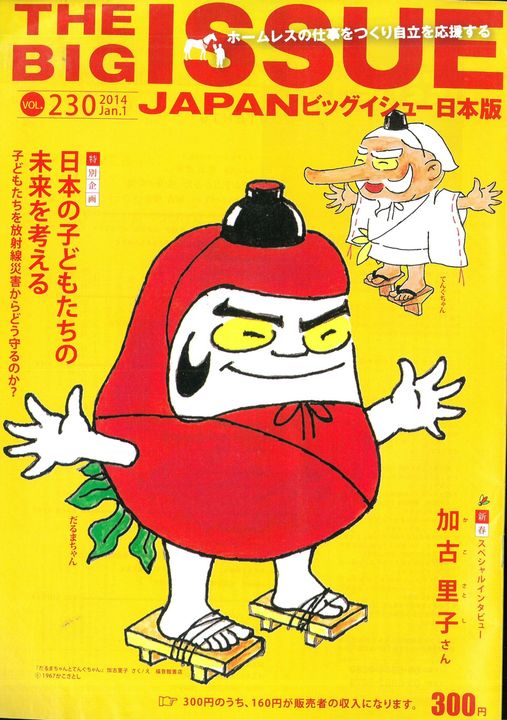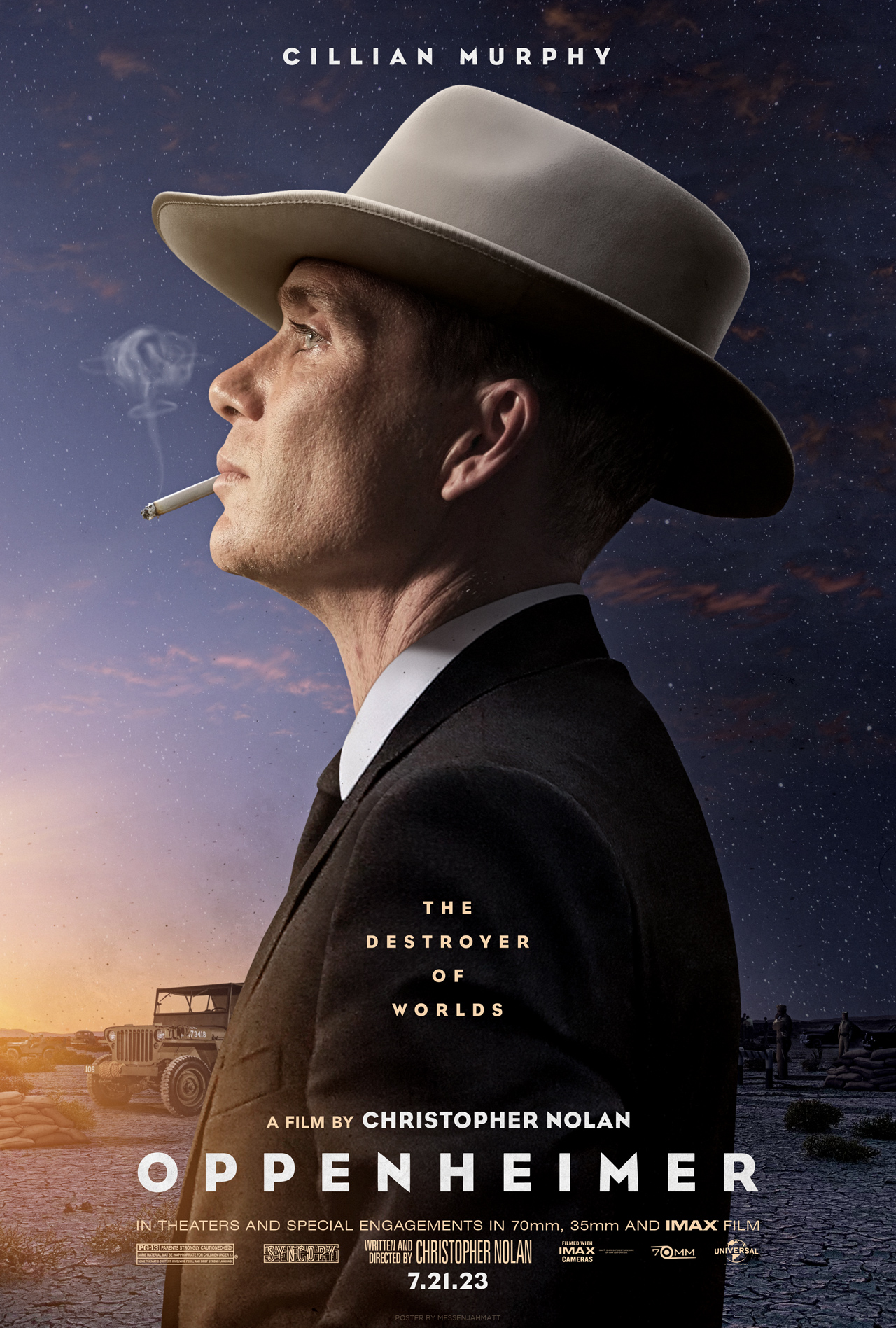Willkommen auf der Seite der "Textinitiative Fukushima"
Die Seiten der Textinitiative Fukushima werden derzeit von der Japanologie der Goethe-Universität betrieben. Gegenwärtiges Anliegen von TIF ist die zeitgeschichtliche Dokumentation. Das Forum dient nun in erster Linie als Archiv für Informationen zu 3/11 sowie allgemein zur Geschichte des Atomaren. Die Suchfunktion ermöglicht Recherchen zu Stichworten, Inhalten und Akteuren.
| Eine Einschätzung von japanischer Seite: Zur Person Oppenheimer | 06.08.2023 |
"After the war, Oppenheimer said “I feel I have blood on my hands.” I don’t think that was just a one-time expression: Oppenheimer must have felt a pang of regret when he said this. But such a regret was different from Szilard’s attitude, which not only recognized moral responsibility but also questioned the use of atomic bombs long before Hiroshima and Nagasaki. Oppenheimer, as one of the members of the Scientific Panel to the Interim Committee (which discussed many important things about the conduct of the war and the possible use of atomic bombs) clearly expressed his opinion that the bomb should be used against Japan as soon as possible. As a leader of the Los Alamos Laboratory—which undertook the final process of the development of the atomic bombs—he could not bring himself to deny the use of the new weapon." (Shiho Nakazawa, Bulletin of the Atomic Scientists, 21. Juli 2023) |
|
| Einspielungsergebnisse des Films "Oppenheimer" - verliert gegen "Barbie", gewinnt als Aufmerksamkeitsspannentest | 24.07.2023 |
"Auch Nolans "Oppenheimer" beeindruckt am ersten Kino-Wochenende. Der Film mit Cillian Murphy (47) in der Hauptrolle wird nach "The Dark Knight" und "The Dark Knight Rises" der drittgrößte Filmstart in Nolans Karriere sein. Das Biopic spielte 33 Millionen Dollar (29,6 Millionen Euro) am Eröffnungstag ein, inklusive der Vorpremieren am Donnerstag. Damit ist er auf dem besten Weg, eines der besten Einspielergebnisse am ersten Wochenende aller Zeiten für einen Film mit Altersfreigabe zu erreichen. Damit stünde er in einer Reihe mit Filmen wie "Deadpool", "It" oder "Joker"." (brigitte aktuell, 23.7. 2023) "Christopher Nolan verzichtet auf klassische Szenenarbeit, Oppenheimer ist eigentlich "nur" eine lange Montage - und das über 180 Minuten hinweg. Soll heißen: Trotz drei klar definierter Akte gibt es keine Verschnaufpause und Oppenheimer gleicht einem regelrechten Dialog-Fließband. Wer hier mal abdriftet oder den Faden verliert, bekommt den nicht so schnell wieder aufgefädelt. Im Gegensatz zu anderen komplexen Nolan-Werken könnt ihr euch damit nicht einfach an beeindruckenden Action-Sequenzen erfreuen, solltet ihr gedanklich mal abschalten." (Gamestar, 21.7. 2023) |
|
| Filmstart OPPENHEIMER 20. Juli 2023 | 19.07.2023 |
"Inhaltsangabe: Als dem Physiker Julius Robert Oppenheimer (Cillian Murphy) während des Zweiten Weltkriegs die wissenschaftliche Leitung des Manhattan-Projekts übertragen wird, können er und seine Ehefrau Kitty (Emily Blunt) sich nicht vorstellen, welche Auswirkungen Oppenheimers Arbeit nicht nur auf ihr Leben, sondern auf die ganze Welt haben wird. Im Los Alamos National Laboratory in New Mexico sollen er und sein Team unter der Aufsicht von Lt. Leslie Groves (Matt Damon) eine Nuklearwaffe entwickeln – was ihnen auch gelingt. Oppenheimer wird zum „Vater der Atombombe“ ausgerufen, doch dass seine tödliche Erfindung bald folgenschwer in Hiroshima und Nagasaki eingesetzt wird, lässt Oppenheimer Abstand von dem Projekt nehmen. Als der Krieg zu Ende geht, setzt sich Robert Oppenheimer als Berater der US-amerikanischen Atomenergiebehörde, die von Lewis Strauss (Robert Downey Jr.) mitbegründet wurde, für eine internationale Kontrolle von Kernenergie und gegen ein nukleares Wettrüsten ein – und gerät ins Visier des FBI." Links: https://www.youtube.com/watch?v=kKpFmwxcl7U
|
|
| AG "Fukushima Archiv" an der Japanologie Frankfurt (WS 23/24) | 03.07.2023 |
Ankündigung: "Bei entsprechender Beteiligung (etwa 7-8 Teilnehmer) der Studierenden soll im Wintersemester 2023/2024 in Kooperation mit dem Archiv der Senckenberg Bibliothek (Dr. Mathias Jehn) ein Archivierungsprojekt gestartet werden. Hier wird es möglich sein, als Japanologe / Japanologin praktische Erfahrung im Bereich der Bibliotheks- und Archivarbeit zu sammeln – gerade im Hinblick auf die für das BA-Studium geforderten Praktikumsnachweise ein schönes Angebot, dass natürlich auch insofern von Bedeutung ist, als dass man mit der Teilnahme an der AG einen ersten Schritt in das zunehmend attraktivere Berufsumfeld des Bibliothekarischen unternähme. Da es für die Archivierungsaufgaben normalerweise keine Kurse gibt, stellt das Angebot in der Tat eine einmalige Gelegenheit dar. Für das kommende Semester wären ca. 8 Sitzungen (eventuell Die. o. Mi. nachmittags 16-18 Uhr) angedacht, an denen wir uns nach den Vorgaben der UB an eine professionelle Bearbeitung des „Singler Archivs“ (8 Kartons) machen würden. Die motivierten Studierenden bekommen eine Praktikumsbestätigung (Prof. Dr. Lisette Gebhardt). Außerdem wäre (in einem weiteren Schritt) gegebenenfalls eine Ausstellung zu „Fukushima“ im Schopenhauer Studio der UB zu konzipieren, bei der Dr. Jehn von der UB zudem freundlicherweise Unterstützung zugesagt hat. Im Sekretariat der Japanologie erfolgt bis zum 10. Juli 2023 die Anmeldung." |
|
| „Anti-Atom Protestkultur in Japan“ / Vorträge von Andres Singler an der Goethe Universität (22. Juni) | 22.06.2023 |
Am 22. Juni sprach der Journalist und Japanologe Dr. Andreas Singler an zwei Örtlichkeiten der Goethe-Universität zu seinem Forschungsgebiet „Anti-Atom Protestkultur in Japan“: 1. Vortrag an der Japanologie zum Thema „‘Fukushima‘ vor Gericht – die Atomkatastrophe und ihre juristische Aufarbeitung“ – Donnerstag, 22.6., 12 Uhr, Gebäude SKW, Raum 05.B103 2. Präsentation von ‚Fukushima‘-Materialien in der Universitätsbibliothek – Donnerstag 22.6., 17 Uhr; Universitätsbibliothek, Sitzungssaal; Treffpunkt 16:55 Uhr am Haupteingang der UB (Innenbereich), Bockenheimer Landstraße 134-138. Leitung des Archivzentrums der Universitätsbibliothek: Dr. Matthias Jehn Vortrag und Präsentation boten Einblicke in die Thematik der Anti-Atomkraftbewegung in Japan in der Folge von ‚Fukushima‘ sowie die Feldforschung vor Ort, die Andreas Singler in mehreren Japanaufenthalten durchgeführt hat.  |
|
|
151-155 von 819
|
